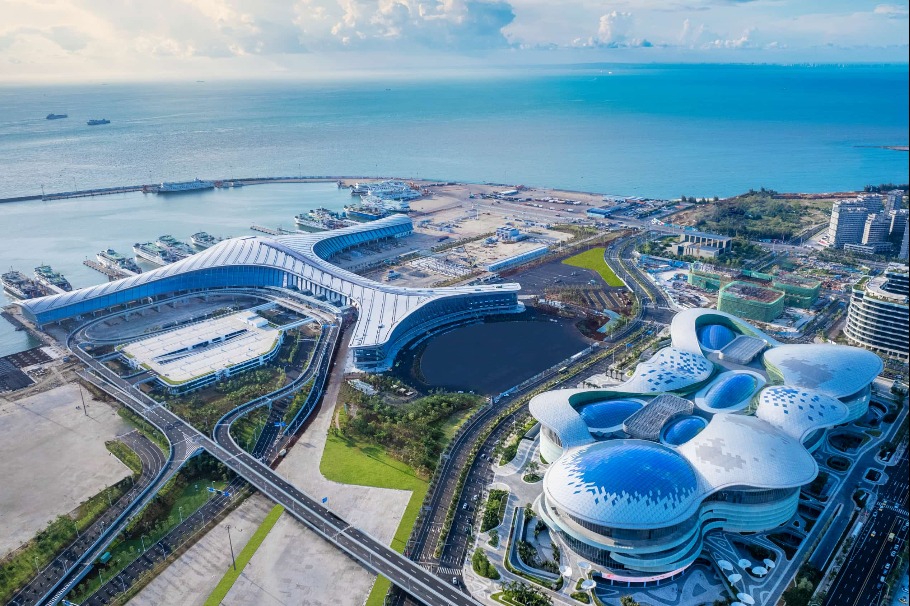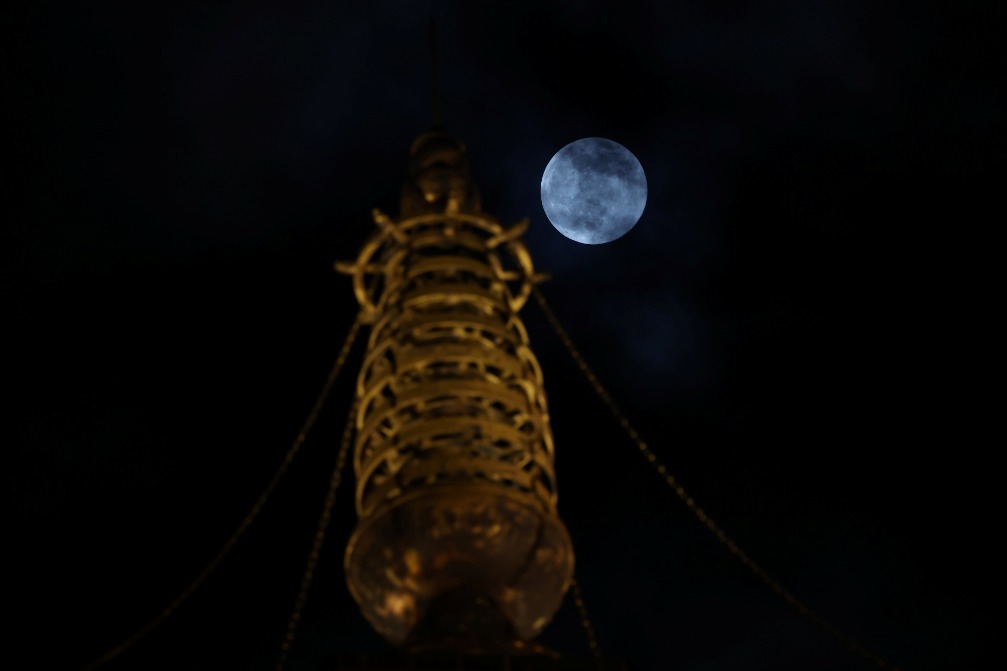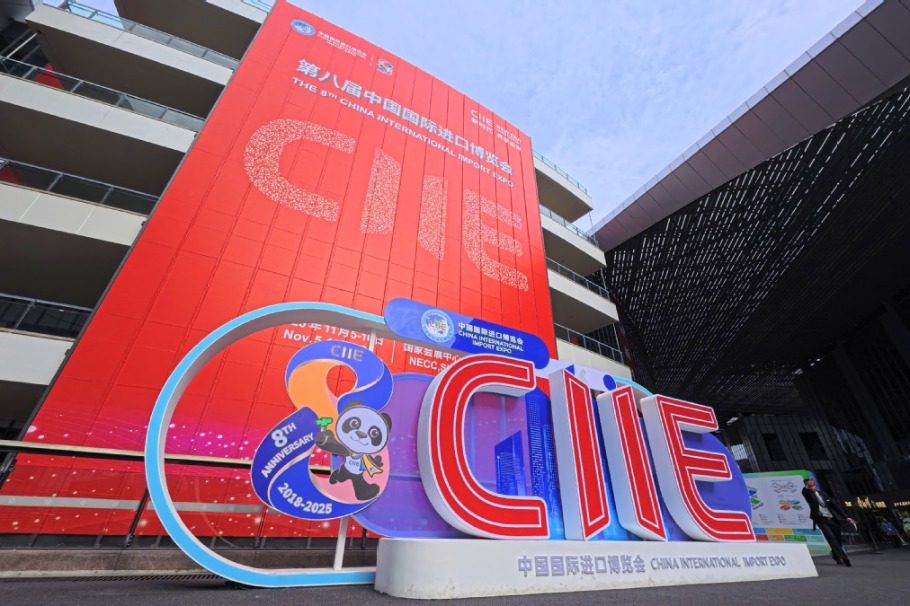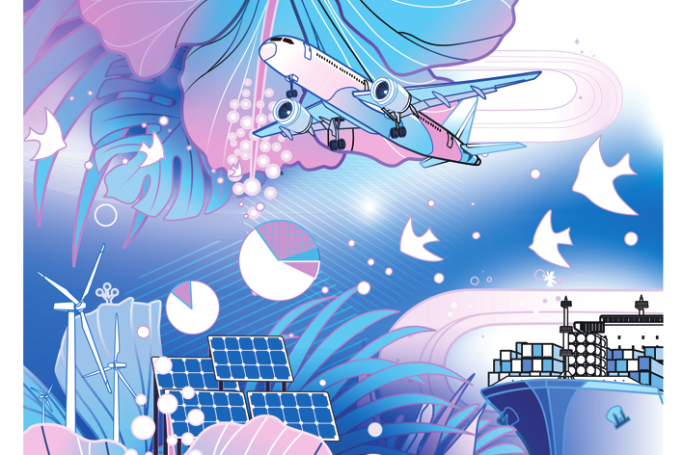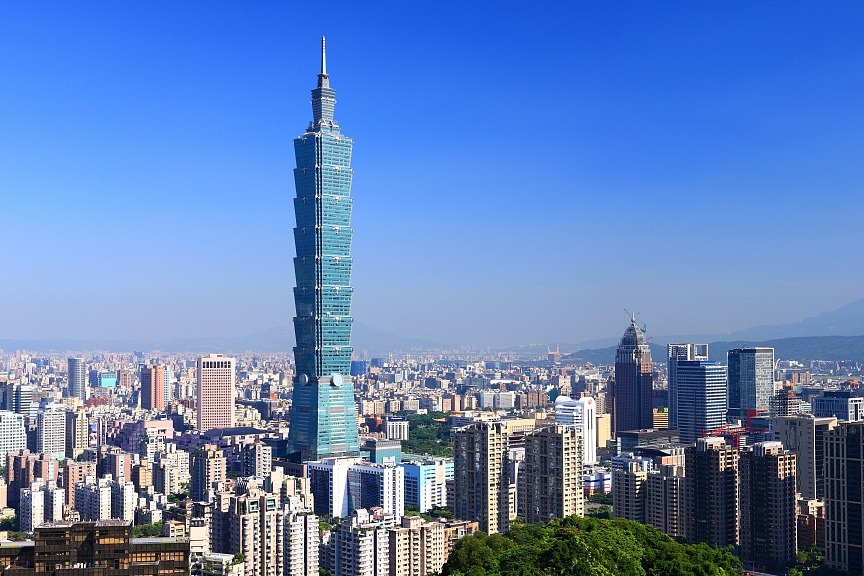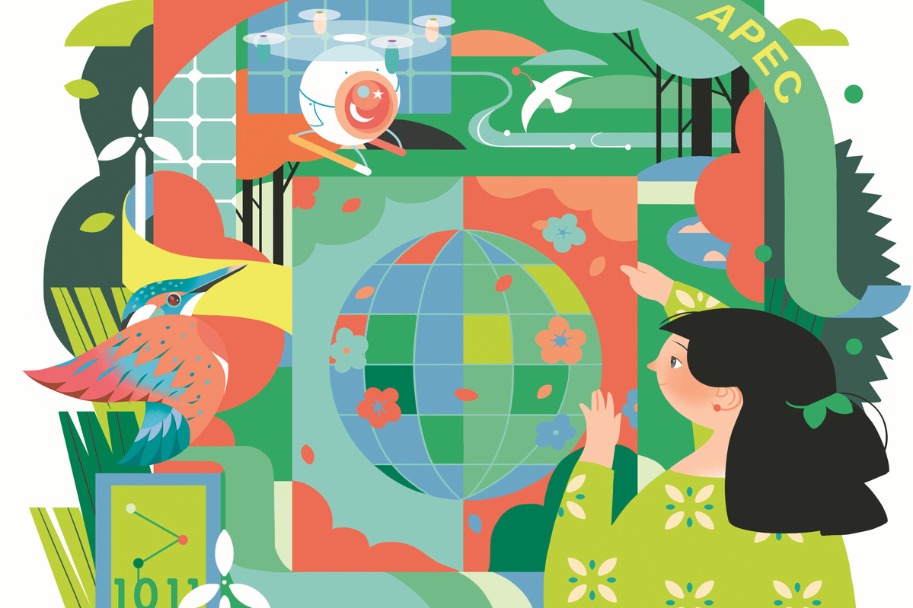My days of environmental fun in China

When I first came to China in 2016, I was fresh from posts in Asia, Africa, and the Middle East. Now, four years have passed, and dramatic changes have taken place in this market at all social levels: The economy develops swiftly, with digital payment covering everywhere; innovation largely spurs the prosperity of all top industries while consumption upgradation enriches people’s lifestyles to a great extent. In addition, people also care more about environmental issues, as their lives are becoming better - for example, the garbage sorting regime in Shanghai. Since rolling out on July 1, it seems to be all anyone can talk about. Recently, I got a chance to serve as a one-day volunteer in a local community, which gave me a new view on everyday life here in Shanghai.
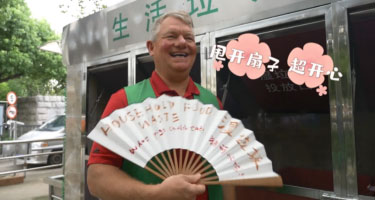
On the morning I volunteered, I traded my suit for shorts and a green vest, and took on a new identity. A fan in hand printed with garbage sorting instructions also made me more confident in what I was doing. What’s more, I asked my colleagues to teach me some popular Shanghainese phrases on garbage sorting before departing. As a saying goes, when you are in Rome, do as the Romans do. Though not fluent in that, I tried to get familiar and engage with the residents using the local dialect.
According to the secretary of the community, every family in this neighbourhood had already received a brochure explaining how to classify different types of garbage; however, some residents were still sorting garbage into the wrong bins. For example, wet tissue belongs to residual waste rather than household waste. In that situation, I would step in and help.
Actually, helping them determine how to sort their trash was quite interesting, especially if done in funny ways: I told the residents that, if a pig can eat it, it’s household waste, whereas if a pig won’t eat it, it’s a residual waste.
I was also delighted to see environmental-protection consciousness sprout in children’s hearts: A 10-year-old girl collected the plastic bottles of drinks she consumed over the past week and threw them all correctly into the recyclable waste bin. Undoubtedly, children are the future of our world, and it is necessary to cultivate their sense of sustainability at an early age. To encourage her recycling efforts, I gave the girl a 24BAG made from 24 rPET bottles by Coca-Cola China in collaboration with the One Foundation and HowBottle, which aims to educate consumers on the possibilities of recycling through a sustainably produced accessory.
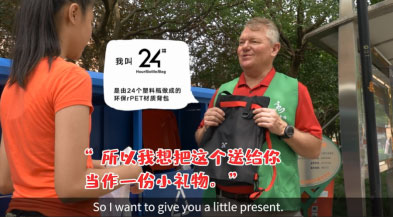
After talking with the cute girl, I met a young man whose girlfriend just broke up with him. He was quite upset and wanted to throw the bunch of flowers he prepared into the trash can. I stopped him and comforted him with, ‘What you view as useless might be the treasure of another. By the same token, you will definitely meet your Ms. ‘Right’ in your life in the ‘Right’ place’.
Getting out of the office and building person-to-person connections with the local residents was great fun. I was also particularly intrigued by the local sense of humor and kindness. When it came to recycling, language barriers didn’t matter anymore. It’s a little complicated at first, but I feel that if we all keep on practicing, with a shared sense of environmental purpose, it will become our second nature. I’m very proud to witness and participate in one part of Shanghai’s green revolution.
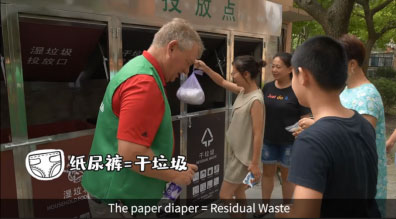
As the president of Greater China and Korea at Coca-Cola for the past four years, I’ve already fallen in love with the dynamic city life of Shanghai, and participated in various sustainability projects through which I could have the opportunity to see more of China. One of these projects is the Happy Farmland Project, which uses an artificial wetland to process wastewater on farms in Jiangsu province. The wetland treats 180 tons of wastewater per day and improves water quality before returning it to the natural environment. Thanks to its proximity to the city, the wetland has transformed the village into an ideal ecotourism destination for city residents.
Looking back on my time here, I’m very happy to have witnessed some of the great changes underway in China, and to be part of the process working with a highly-localized company whose mission includes effecting positive sustainable changes in society. For me, China has a very special place in my heart, as I am also amazed at its profound culture, its mix of ancient and modern, its increasing civic engagement on public issues, and its innovative digital ecosystem that touches everyone’s daily life.
I hope I’ll have more opportunities in the future to give back to this beautiful country and make my own mark, as a little care can go a long way to create big change.
The author is president of Greater China and Korea at Coca-Cola.
The opinions expressed here are those of the writer and do not represent the views of China Daily and China Daily website.

















